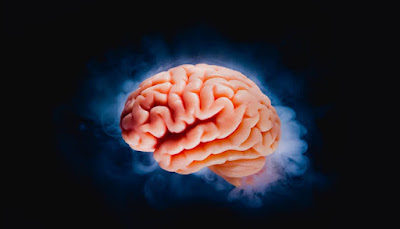At What Age is the Brain 100% Developed | Brain Developed Game Features

At What Age is the Brain 100% Developed
The brain is the most complex organ in the human body, controlling all of our thoughts, actions, and emotions. While it’s constantly changing and adapting throughout our lives, there’s a commonly held belief that the brain reaches full maturity at a certain age. In this article, we’ll explore this idea in depth, looking at the scientific evidence behind brain development and answering the question: at what age is the brain 100% developed?
Brain Development in Infancy and Early Childhood
Brain development begins in the womb, with neurons forming at a rate of 250,000 per minute in the third trimester. By the time a baby is born, their brain has already formed many of the basic structures that will be necessary for future development. During the first few years of life, the brain undergoes rapid growth and development, with neural connections being formed at a rate of 700-1000 per second.
In particular, the prefrontal cortex, which is responsible for executive functions like planning, decision-making, and impulse control, undergoes significant development in early childhood. However, this process is not linear, and different areas of the brain develop at different rates. For example, the visual cortex, which is responsible for processing visual information, reaches full maturity by around 6 months of age, while the prefrontal cortex may not fully develop until the mid-20s.
Brain Development in Adolescence
Adolescence is a period of significant brain development, marked by changes in both structure and function. One of the key features of adolescent brain development is increased connectivity between brain regions, which allows for more efficient communication between different areas of the brain.
At the same time, there’s evidence to suggest that the prefrontal cortex, which is responsible for decision-making and impulse control, may not be fully developed until the mid-20s. This is thought to be due to ongoing myelination, a process in which the white matter in the brain is insulated, allowing for faster and more efficient neural communication.
Brain Development in Adulthood
While many people believe that the brain stops developing in early adulthood, this is not actually the case. The brain is constantly changing and adapting in response to new experiences, a process known as neuroplasticity. This means that it’s possible to continue learning, forming new memories, and adapting to new situations throughout our lives.
In fact, there’s evidence to suggest that certain areas of the brain continue to develop well into middle age and beyond. For example, a study published in the journal NeuroImage found that the hippocampus, which is responsible for forming and storing new memories, showed increased gray matter volume in adults aged 55-75 who engaged in regular aerobic exercise.
Understanding Brain Development
So, at what age is the brain 100% developed? The answer, as we’ve seen, is complex and multifaceted. While certain areas of the brain, like the visual cortex, may reach full maturity relatively early in life, other areas, like the prefrontal cortex, may continue to develop well into young adulthood.
Moreover, the idea of the brain being “100% developed” is somewhat misleading, as the brain is constantly changing and adapting throughout our lives. Instead of thinking about the brain as a static entity that reaches a state of completeness at a certain age, it’s more accurate to think of it as a dynamic and ever-changing system that is shaped by our experiences and interactions with the world around us.
In conclusion, understanding brain development is essential for anyone interested in human behavior and cognition. While there’s no one-size-fits-all answer to the question of when the brain is 100% developed, it’s








0 Comments